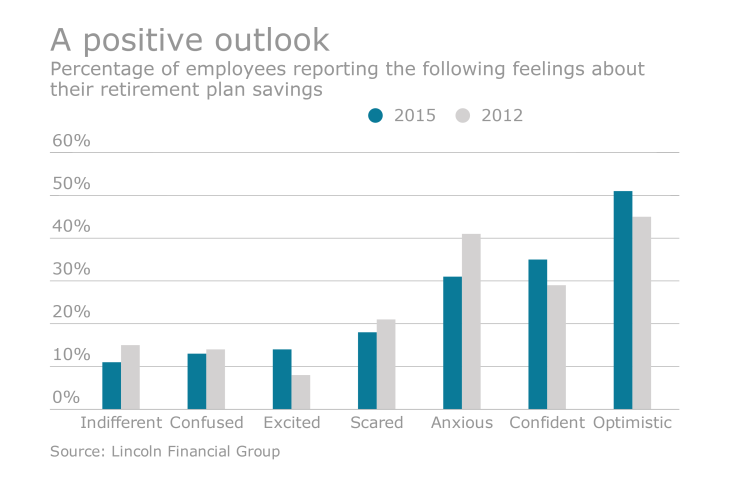The Insured Retirement Institute released its 2017 Retirement Security Blueprint this week, detailing the significant challenges many employees face in saving for retirement while calling on both employers and lawmakers to support policies that would make it easier for workers to save for post-work expenses.
Lee Covington, senior vice president and general counsel at the IRI, says that the group’s mission is to “advocate for sustainable retirement strategies Americans need to achieve a secure dignified retirement and how public policy can advance that mission and improve retirement security for all Americans.”
Recent studies have shown that only a small segment of
“We believe when it comes to solving these challenges it is about protecting and expanding access and opportunity for retirement savers,” he says.
One way to make a difference is to “expand access to workplace retirement plans to help Americans save and prepare for retirement,” according to the IRI Blueprint. The IRI also would like to preserve the current tax treatment for retirement savings.

“We are more responsible for saving for our own retirement,” he says. “People would save less if tax deferral were reduced or eliminated.”
He called on policymakers to maintain the pre-tax nature of saving for retirement, saying that removal would remove Americans’ chances for a secure retirement.
The IRI would also like to see the government retain a diversity of types and structures of retirement plans. There has been some talk about consolidating defined contribution retirement plans into one type of plan that serves multiple industries instead of having 401(k), 403(b) and 457 plans available.
“Consolidation, if not considered carefully, could have significant repercussions for individuals and employers,” the report says. “We strongly encourage Congress and the administration to maintain the different types of structures of retirement plans that were created for the needs of different types of workers.”
Research has also shown that people who plan for retirement with the help of a financial professional have better retirement savings habits and better planning behavior than those who don’t. The IRI believes that the fiduciary rule, which was
The IRI says it supports the administration’s move to delay implementation of the rule until policymakers have time to evaluate them and protect consumers from negative consequences.
“At the same time, Congress should enact legislation to establish a consistent best interest standard of care while preserving access to retirement advice and a wide array of lifetime income products for America’s retirement savers,” the Blueprint states.
The IRI Blueprint calls for policymakers to expand access and offer additional options, like multiple employer plans, says Paul Richman, vice president of government affairs for the IRI.
He encourages Congress to enact the Retirement Enhancement Savings Act of 2016, which never made it out of the Senate finance committee last year, which would clarify employer fiduciary responsibility for choosing lifetime income products and enable annuity portability. If an employer changes record keepers, the provision would treat the recordkeeping change as a distributable event, according to the Blueprint. It would also remove regulatory and legal barriers to offering multiple employer plans to start-ups and small businesses.
“Allowing small businesses to band together to offer a retirement plan would reduce the number of workers who have no access to a workplace plan,” Richman says.





